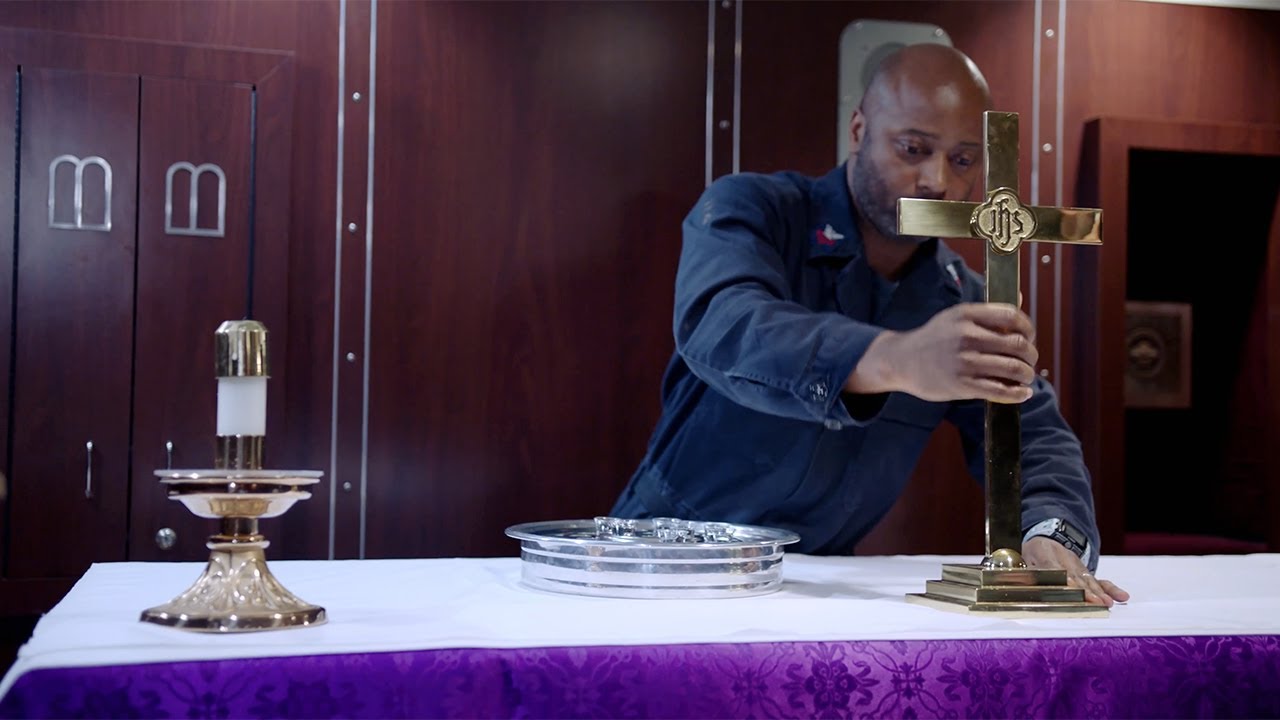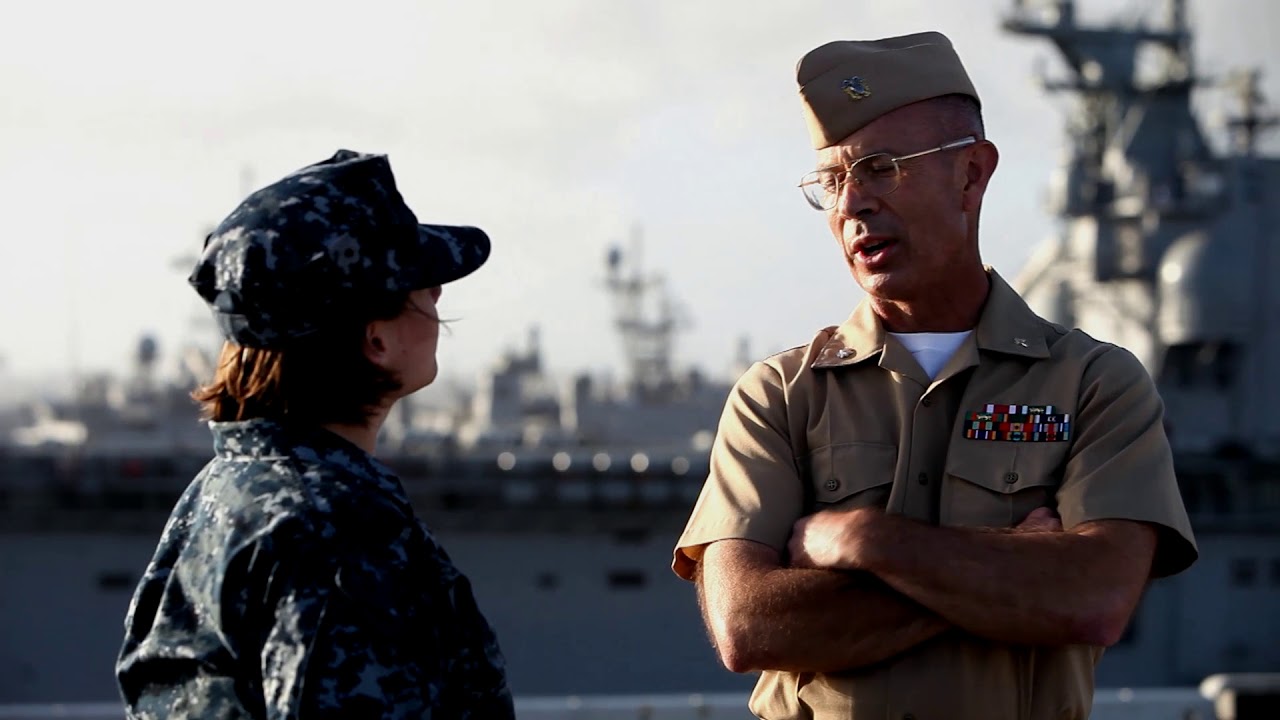What to Expect
About Chaplain Jobs in the Navy
Responsibilities
As a Navy Chaplain, your job spans a broad range of duties. You will support fellow servicemembers during their most joyful moments and during their most difficult. Your responsibilities might be to:
- Conduct worship services in a variety of settings
- Perform religious rites and ceremonies such as weddings, funeral services and baptisms
- Counsel individuals who seek guidance
- Oversee religious education programs, such as Sunday school and youth groups
- Visit and provide spiritual guidance and care to hospitalized personnel and/or their family members
- Train lay leaders who conduct religious education programs
- Promote attendance at religious services, retreats and conferences
- Advise leaders at all levels regarding morale, ethics and spiritual well-being
Work Environment
Navy Chaplains immerse themselves in the daily lives of servicemembers. In what can be best described as a ministry of presence, they are there to offer guidance and insight, whenever they’re needed. You could provide support on land or at sea, when presiding over religious ceremonies on a base or conducting services from the flight deck of an aircraft carrier.
Training & Advancement
Those pursuing a Chaplain position are required to attend Officer Development School (ODS) in Newport, RI. Upon completion, they attend a seven-week course at the Naval Chaplaincy School and Center, also in Newport, RI.
Promotion opportunities are regularly available but competitive and based on performance.
Post-Service Opportunities
Specialized training received and work experience gained in the course of service can lead to valuable credentialing and occupational opportunities in related fields such as family counseling and behavioral therapy in the civilian world.
Education Opportunities
Navy Chaplains typically continue their education throughout their careers. Opportunities for continuing education are available through the Advanced Education Program while being paid full-time as a Navy Officer. Beyond professional credentials and certifications, Navy Chaplains can advance their education by:
- Pursuing opportunities at institutions such as Naval Postgraduate School (NPS)
- Completing Joint Professional Military Education (JPME) at one of the various service colleges
Keep in mind: if you’re in the process of starting or completing your graduate theological degree, you may have the opportunity to enter the Navy Chaplain Candidate Program (CCPO) as a student.
Qualifications & Requirements
A candidate seeking to serve as a Navy Chaplain and Officer must:
- Have a bachelor's degree from a qualified four-year undergraduate educational institution
- Have a graduate degree in theological or related studies from an accredited educational institution. (Note that a qualifying degree program requires no fewer than 72 semester hours or 108 quarter hours of graduate-level work. Related studies may include graduate courses in pastoral counseling, social work, religious administration and similar disciplines when one-half of the earned credits include topics in general religion, world religions, the practice of religion, theology, religious philosophy, religious ethics and/or the foundational writings from the applicant's religious tradition.)
- Have two years of full-time religious leadership experience that's compatible with the duties of a Religious Ministry Professional (RMP) in their respective Religious Organizations (RO) and relevant to the settings of military chaplaincy
- Must be able to obtain an Ecclesiastical Endorsement from a religious faith organization registered with the Department of War
General qualifications may vary depending upon whether you’re currently serving, whether you’ve served before or whether you’ve never served before.
To learn more and see if you qualify to serve as a Navy Chaplain, call the Chaplain Corps at 888-NAVYCHC.
Part-Time Opportunities
Serving part-time as a Navy Reserve Chaplain, your duties will be carried out during your scheduled drilling and training periods. During monthly drilling, Chaplains in the Navy Reserve typically work at a location close to their homes. This gives you the flexibility to minister in the Navy while maintaining responsibilities to your congregation at home.
For Annual Training, Chaplains may serve anywhere in the world, alongside the Sailors, Marines and Coast Guardsmen to whom they minister.
Take a moment to learn more about the general roles and responsibilities of Navy Reserve Sailors.
Most of what you do in the Navy Reserve is considered training. The basic Navy Reserve commitment involves training a minimum of one weekend a month (referred to as drilling) and two weeks a year (referred to as Annual Training) – or the equivalent of that.
Chaplains in the Navy Reserve serve in an Officer role. Before receiving the ongoing professional training that comes with this job, initial training requirements must be met.
For current or former Navy Officers (NAVET): Prior experience satisfies the initial leadership training requirement – so you will not need to go through Officer Training again.
For current or former Officers of military branches other than the Navy (OSVET), as well as for Officer candidates without prior military experience: Officer Candidates will be required to attend the Officer Development School (ODS) in Newport, RI. ODS is a five-week program that provides a comprehensive and intense introduction to the responsibilities of Navy Staff Corps Officers. Officers who previously held a commission in another United States Military Service, National Oceanic and Atmospheric Administration, Public Health Service, or United States Coast Guard are exempt from attending ODS or LDO/CWO Academy.
For educational and institutional qualifications and requirements, please reference the Qualifications & Requirements section above.
General qualifications may vary depending upon whether you’re currently serving, whether you’ve served before or whether you’ve never served before.


































































































































